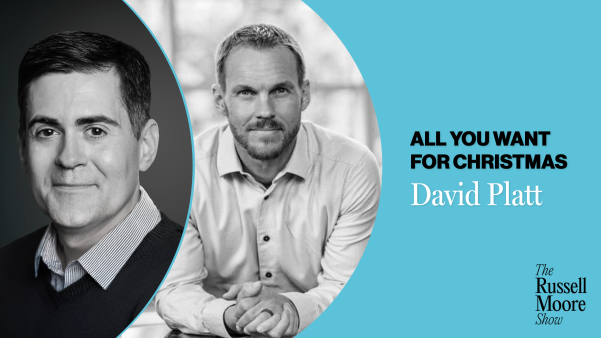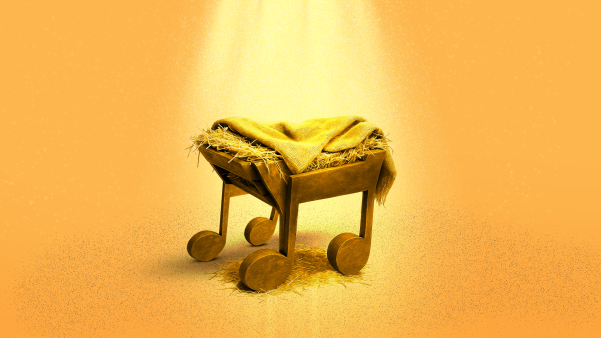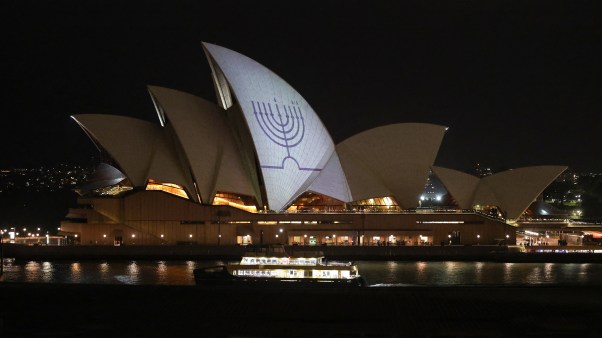E ternal. Immutable. Omnipresent. Omniscient. Omnipotent. Sovereign. Infinite. These words describe God, says Jen Wilkin, a writer and minister at the Village Church in Denton, Texas. Just as important, they don’t describe us humans. Wilkin explores the meaning of these adjectives in None Like Him: 10 Ways God Is Different from Us (and Why That’s a Good Thing) (Crossway). She recently spoke with Australian theologian Michael Bird about the importance of knowing what God is—and what we aren’t.
None Like Him: 10 Ways God Is Different from Us (and Why That's a Good Thing)
Crossway
176 pages
$11.85
What inspired you to write about God’s attributes?
One of my favorite books is The Knowledge of the Holy, in which A. W. Tozer explores the attributes of God. It helped me realize that the Bible is first and foremost about who God is—not who I am. Once I began reading the Bible to discover God’s character, I was able to see my own in relation to his.
I wanted to expand on what Tozer and others had done, drawing out the implications of God’s attributes in our everyday lives. I want readers to see how we commit idolatry when we try to take on attributes that are not ours to possess. For example, once we recognize our desire for limitlessness as destructive, we are better able to willingly and joyfully submit to our God-given limits.
We tend to think of ourselves as gods of our own little worlds. How does knowing God’s greatness free us from that trap?
If we consider who the Bible says God is, it’s immediately apparent that rivalry is laughable, not to mention dangerous. The ground may not swallow us, as it did Nadab and Abihu (Lev. 10). We might not instantly fall dead, as did Uzzah (2 Sam. 6). But we will certainly map a route to our destruction, and we will harm others in the process.
When we exalt ourselves, we have no hope of loving our neighbor rightly. This is why believers should meditate on God’s perfections. When we behold him for who he is, we begin to love ourselves accurately, as flawed but redeemed. We begin to love our neighbor lavishly, as an overflow of gratitude to God.
How does knowing our limits liberate us to rely on God’s power?
Human limitations predate the Fall. Adam and Eve were created to be limited and needy, to be dependent on their Creator. We are not designed for limitlessness, and we are crushed under its demands when we pursue it. Recognizing that limits are for our good (and for God’s glory) helps us work with rather than against them.
Why is it important to dwell on God’s self-sufficiency?
We don’t know any human who has no needs, so it can be difficult to grasp the implications of a God who needs nothing—including us.
But once we get over our disappointment at our insignificance, we learn to glory in the assurance of a relationship that in no way depends on us. God loves us for reasons that remain shrouded in mystery, not because he needs us. Rather than posing as self-sufficient, we can embrace our neediness as evidence that God’s grace is our only hope.
Why is God’s unchanging nature comforting?
It may be true in human terms that “change is good,” but I can’t think of a less comforting thought than a changeable God. We need God to stay the same. We give him ample reason to change his mind about us during our lives. But because his will is fixed, our salvation is sure.
If God could change, we would worship whomever or whatever is able to change him. Because he is unchangeable, we can know that our worship is given rightly and our hope is anchored in rock, not shifting sand.
Which of God’s attributes astounds you the most?
Maybe it’s my stage of life, but God’s omnipresence and omniscience struck me afresh as I wrote the book. As a parent of teenage children, I’m tempted to mimic those characteristics around my kids as a means of control. But I’m learning to trust God when my children are out of sight. It would not be healthy for them to have an all-seeing, hovering parent, but I still crave a level of contact and insight with them that falls beyond the boundaries of good parenting.
God’s omniscience and omnipresence also affect me personally. I live differently when I affirm that God sees everything I do and is fully present everywhere I go. I’m challenged to live in a way that acknowledges these truths.










